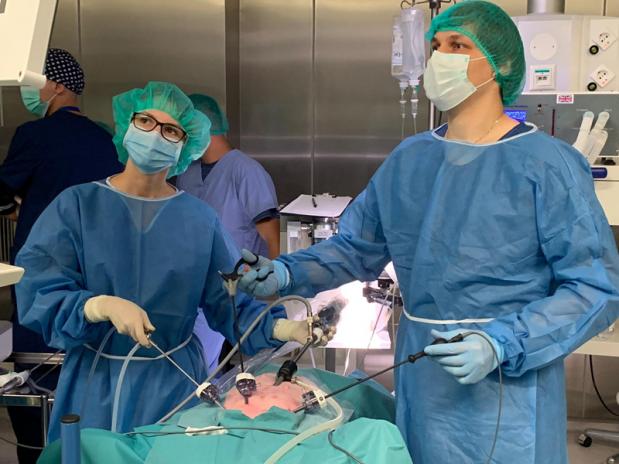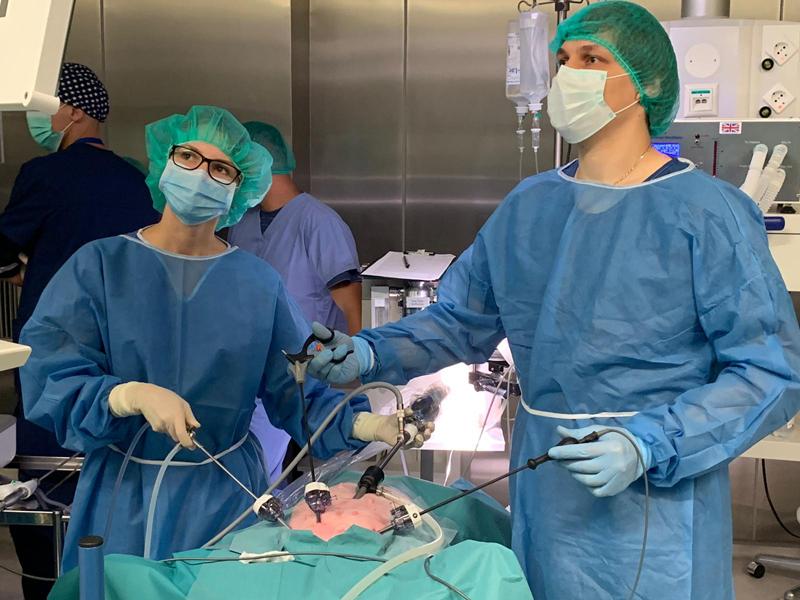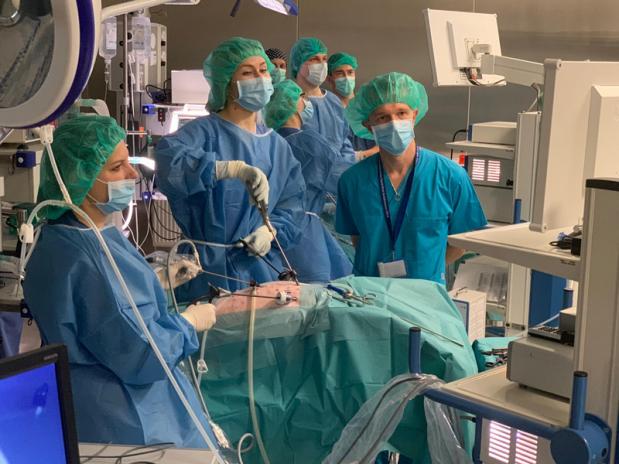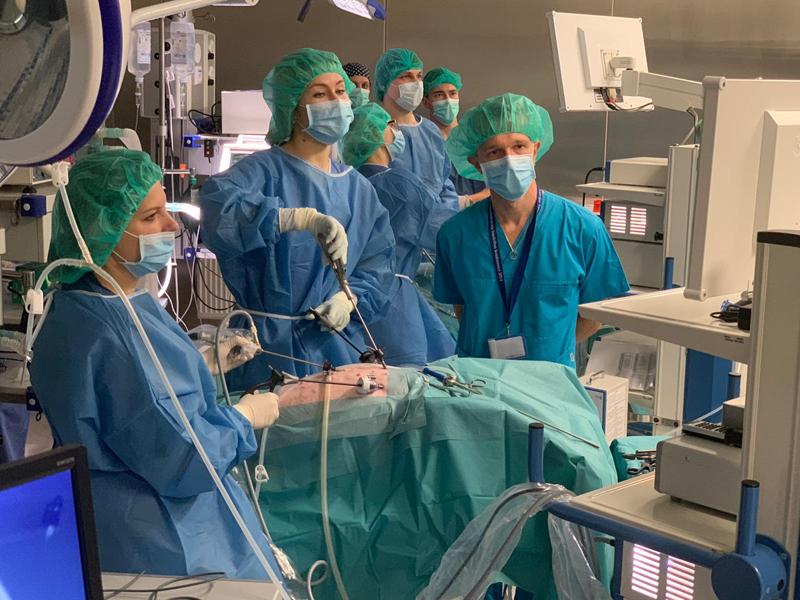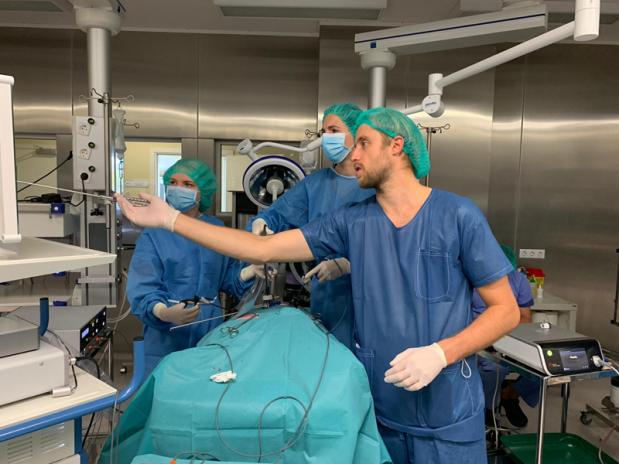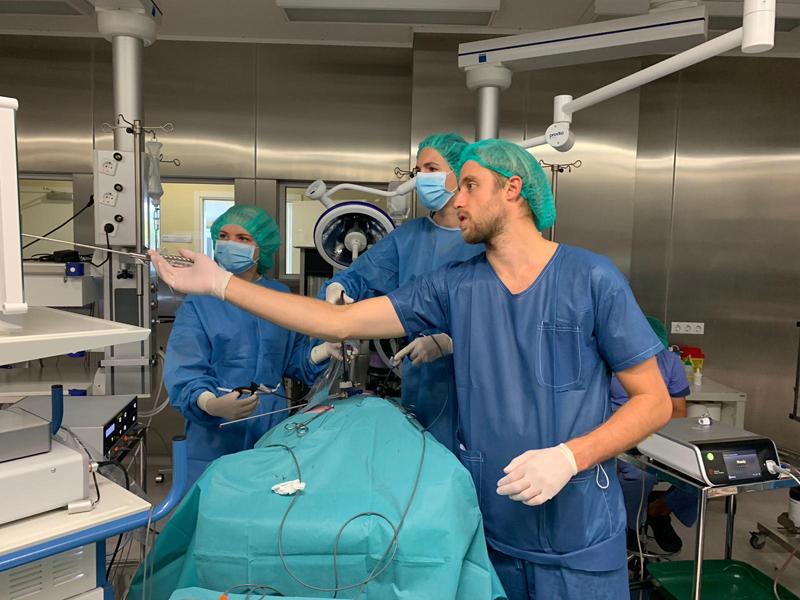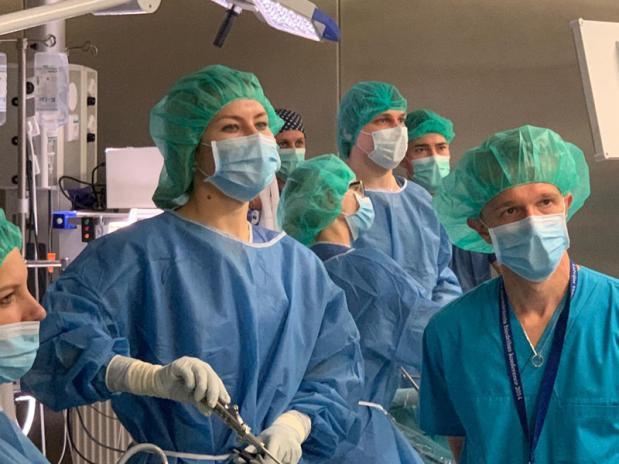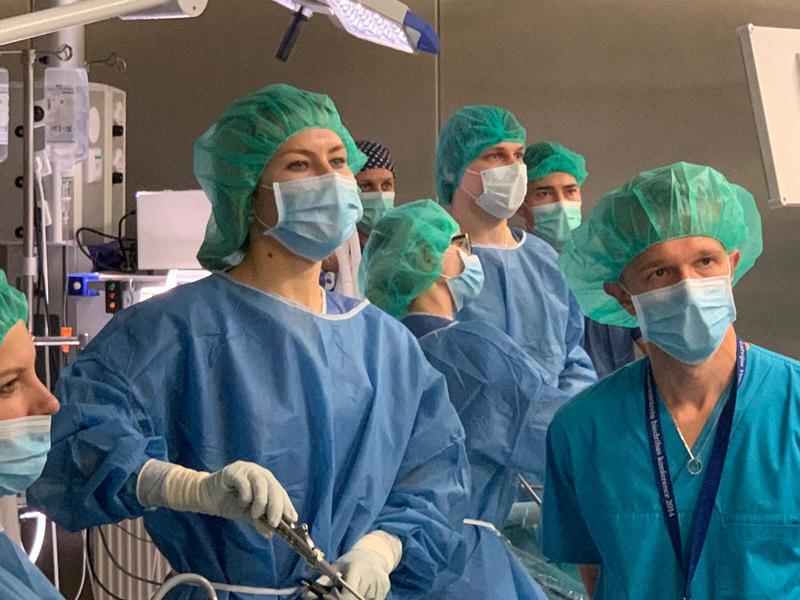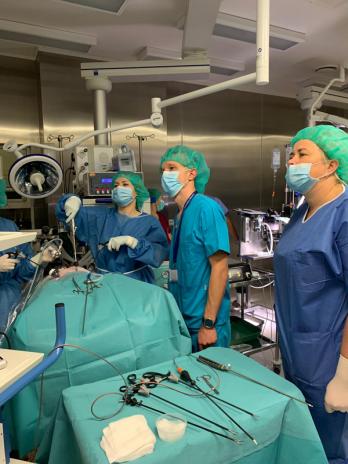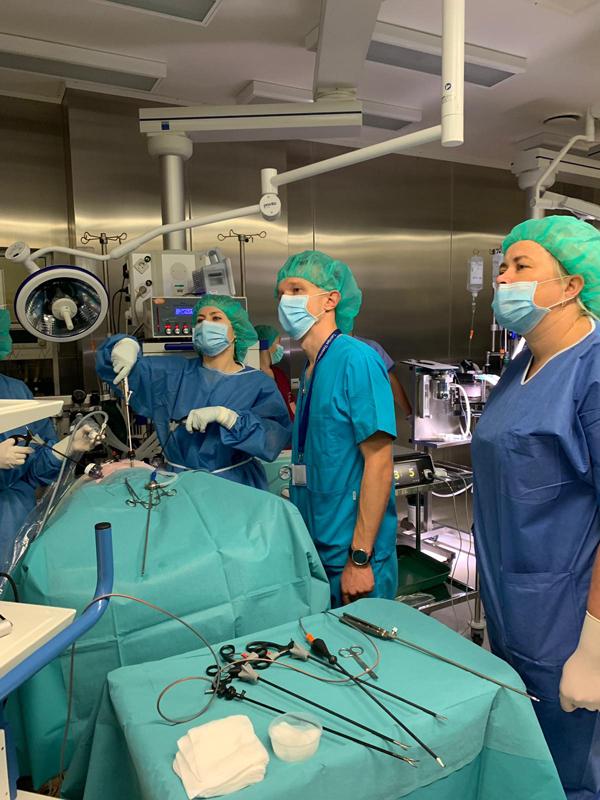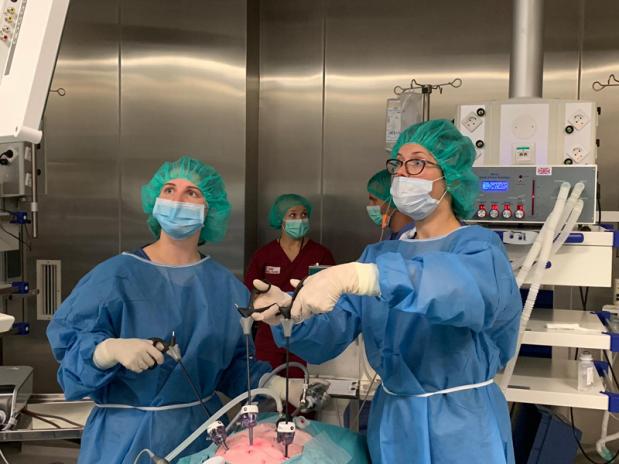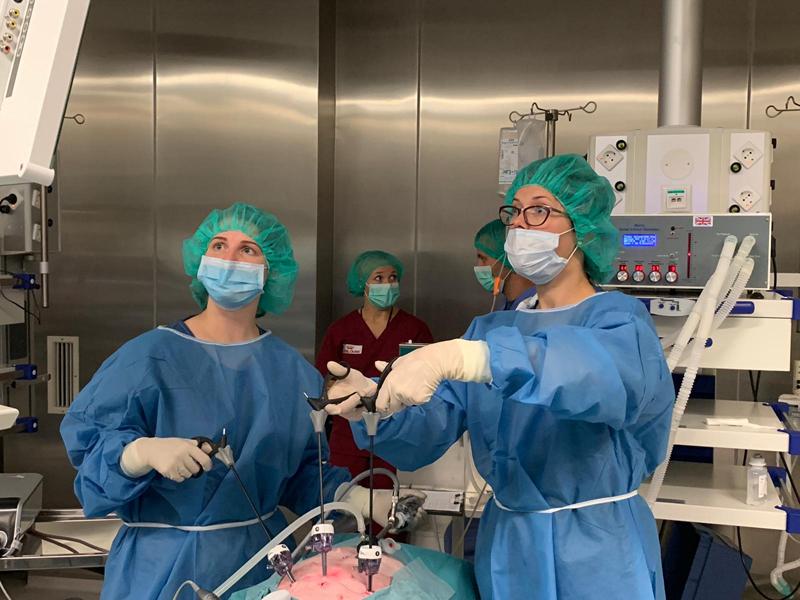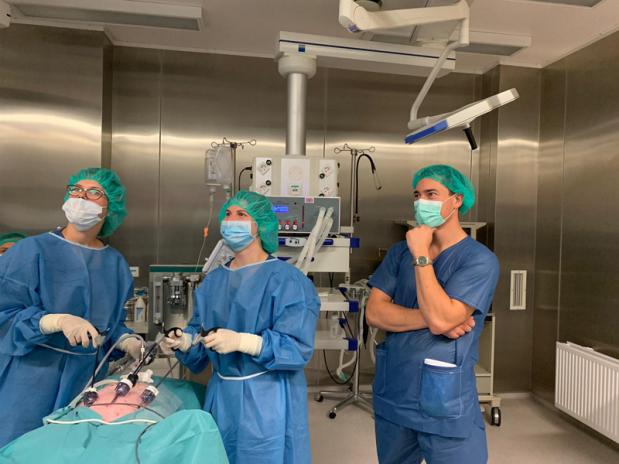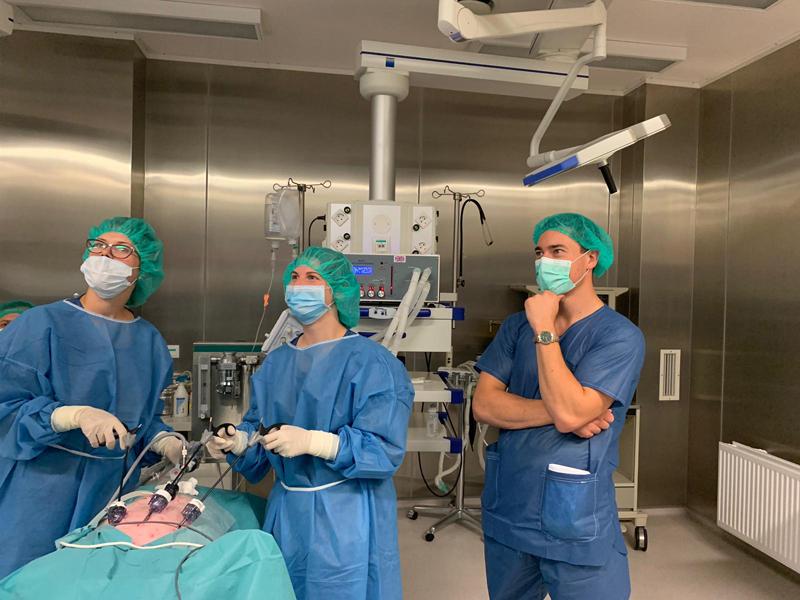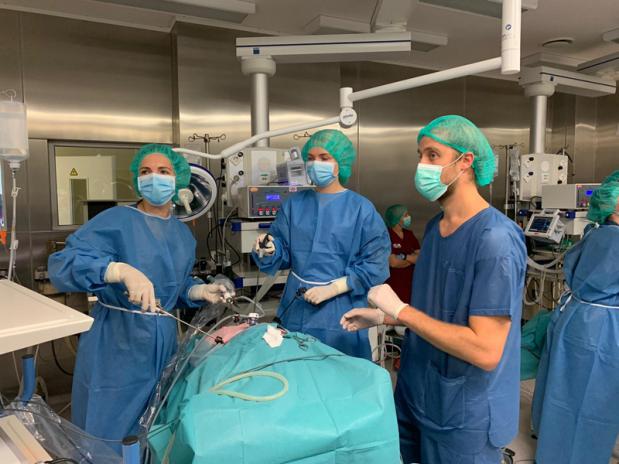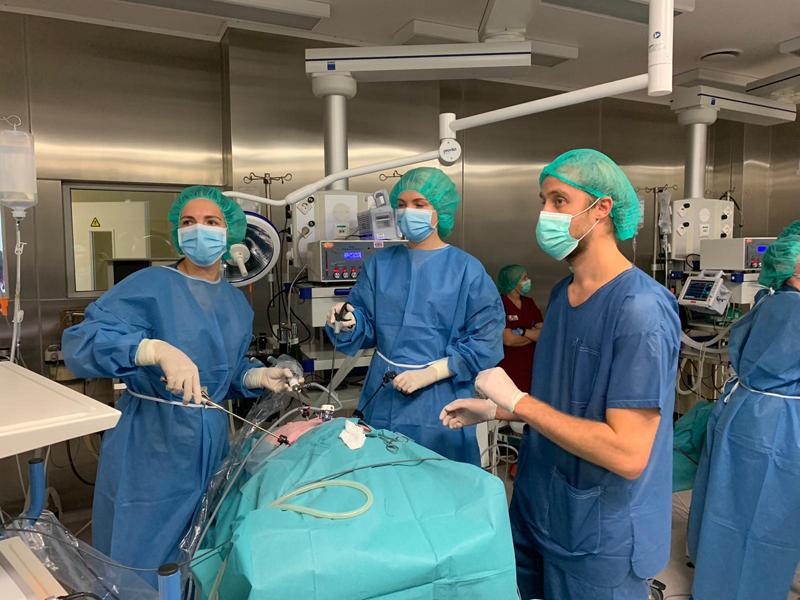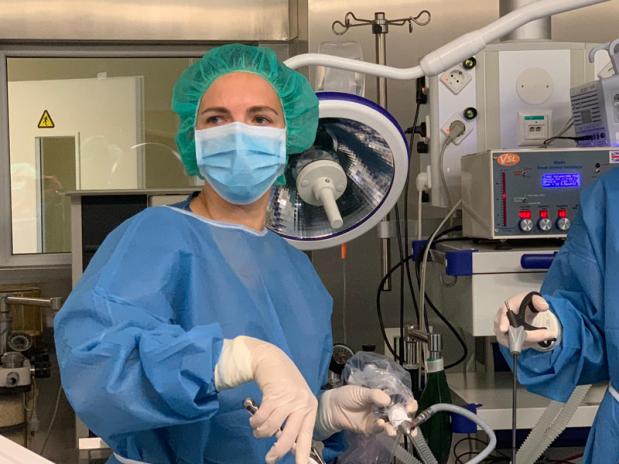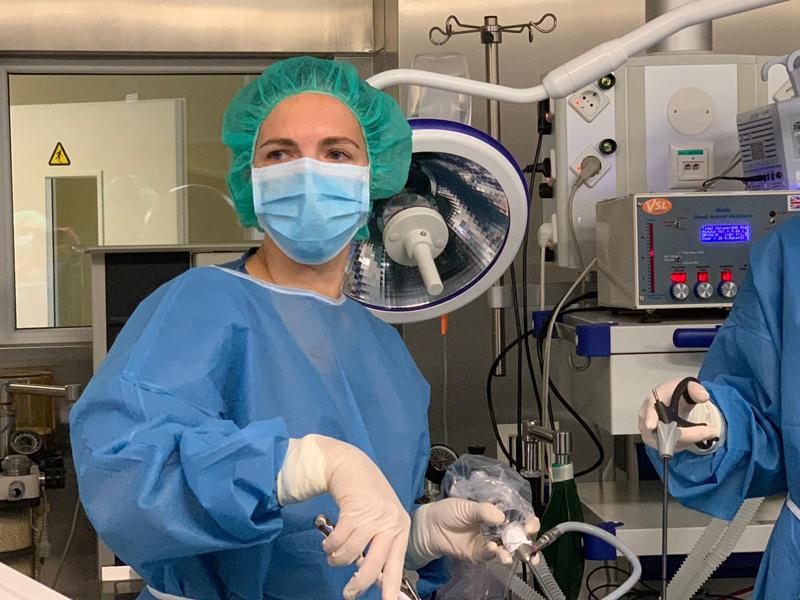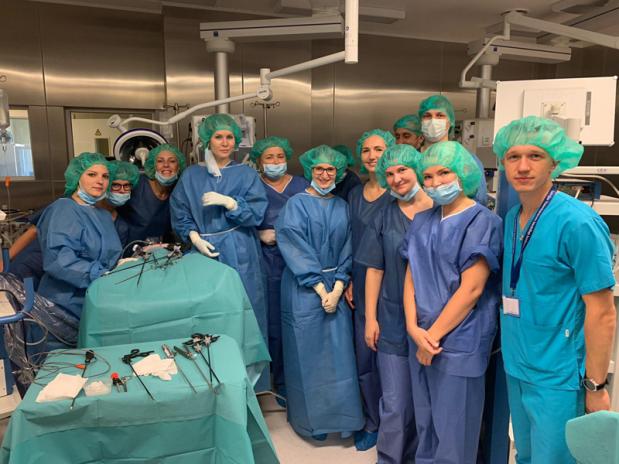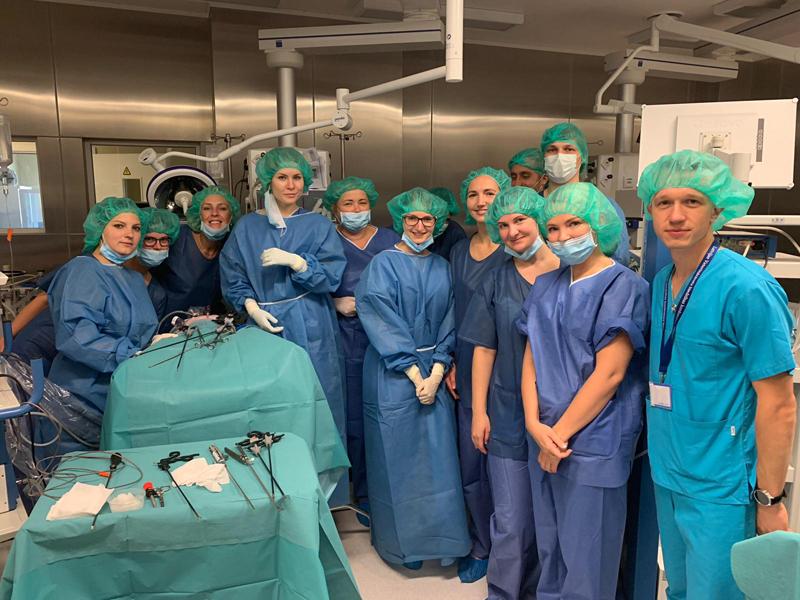First laparoscopy courses for RSU gynaecology residents using live tissues
On 23 August, laparoscopy courses for senior gynaecology resident students from Rīga Stradiņš Unviersity (RSU) were held at the Medical Competency Centre in Jelgava. The courses were organised with the support of the RSU Faculty of Continuing Education’s Medicine Residency in Medicine study programme.
Simulation-based training is one of the fundamental requirements for a uniform European gynaecology resident education, as outlined by the European Board and College of Obstetrics and Gynaecology. The traditional approach of teaching prospective surgeons during surgery is no longer an acceptable teaching method. Endoscopy requires not only surgical, but also psychomotor skills, and these skills can also be acquired outside the operating theatre. To ensure patient safety, these skills can nowadays be acquired by using simulations before performing a surgery in an operating theatre. The acquisition of surgical skills using live tissues imitates the real-life conditions of an operating theatre. This is a unique opportunity that only a few medical centres in Europe offer.
These first courses were created in order for gynaecology students to be able to practice performing various manipulations at different stages of surgery in a safe and controlled environment. The courses were created and implemented by the Head of the RSU Gynaecology and Obstetrician Residency programme, Asst. Prof. Jana Žodžika, in cooperation with Assst. Prof. Aleksandrs Maļcevs, who is a Board Member of the Doctor Safe Train Foundation, as well as with gynaecologists Zane Grabe, Antons Babuškins and Jurģis Vītols. At these courses the students learned how to perform a bladder suspension surgery, remove the fallopian tubes as well as upgraded their skills and knowledge of tissue dissection and urinary bladder repair.
Related news
 RSU adopts amendments to its Code of Ethics to uphold professional ethics requirementsFor Students, For RSU Employees
RSU adopts amendments to its Code of Ethics to uphold professional ethics requirementsFor Students, For RSU Employees